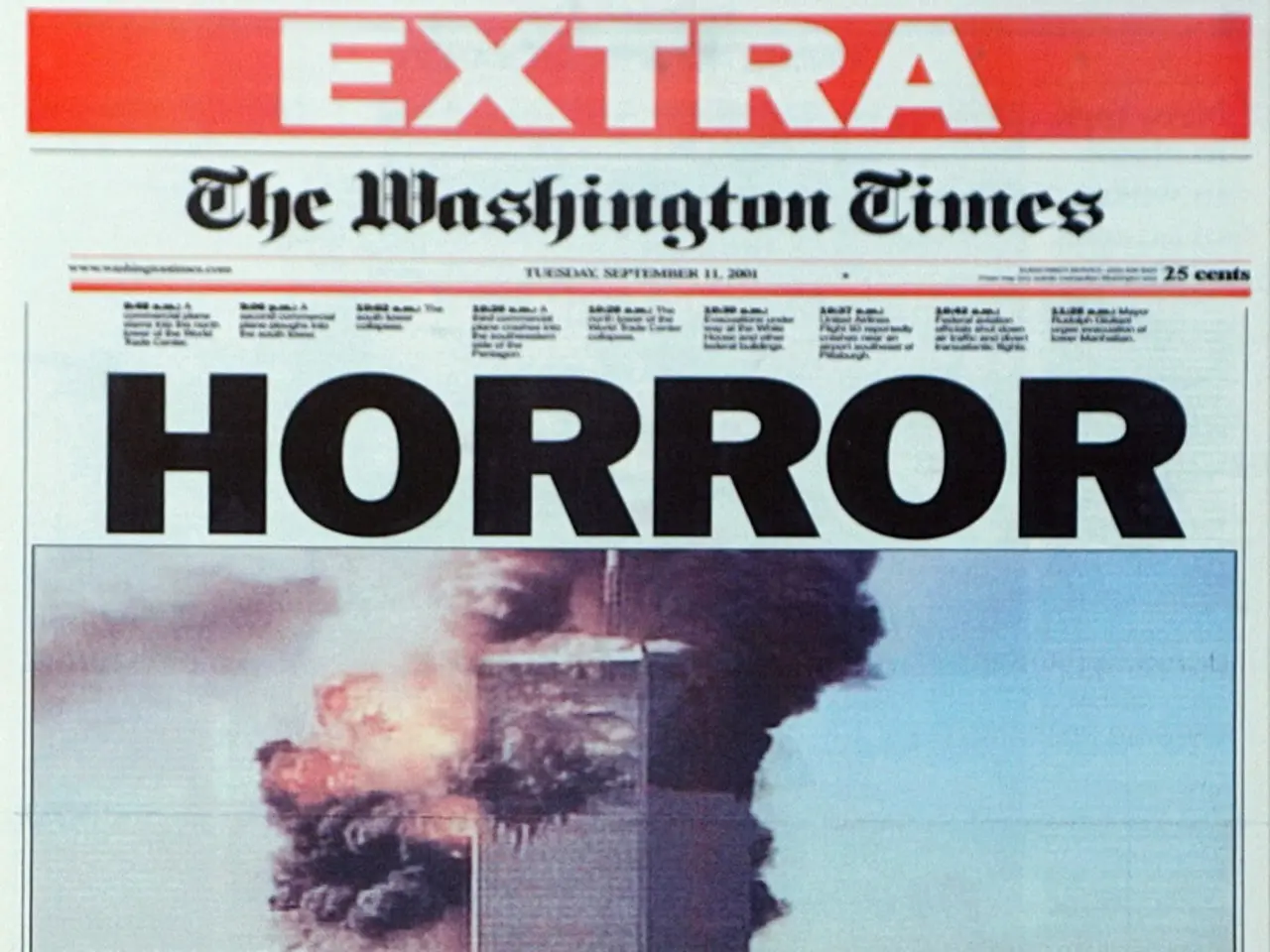Israel's vulnerabilities have been unveiled by Iran's assaults
In a significant development in the ongoing tensions between Israel and Iran, Tehran recently launched an attack on the Israeli consulate in Damascus, marking a bold move to challenge Israeli presence and influence in Syria. This attack, which resulted in the death of Brigadier General Mohammad Reza Zahedi and other commanders of the Islamic Revolutionary Guard Corps, has set off a chain of events that could potentially broaden the ongoing multi-front war in the region.
Iran's attack was not limited to preventing the flow of weapons to Lebanese Hezbollah or pushing Iran-backed groups away from Israel's northern border. Instead, it was an attempt to eliminate Iranian leaders in Syria, underscoring Iran's willingness to confront Israel beyond its borders and signaling an intensification of proxy conflicts in the Levant region.
Israel's response, reflecting a strategic doctrine of "zero-threat tolerance," saw the country launch strikes on Syrian military headquarters in Damascus and attacks against Iranian and Hezbollah-related targets in Lebanon. This demonstrates Israel's readiness to conduct expansive and simultaneous operations on multiple fronts to curtail Iranian influence.
The escalation of tensions has several strategic implications. Firstly, it risks the escalation of multi-front tensions, as Israel is now confronting Iranian-backed actors in Syria, Lebanon, and Gaza simultaneously. This could lead to wider regional destabilization.
Secondly, Israel's air campaign targets the Syria government's military assets, weakening Assad-affiliated forces and complicating Syria's internal crisis. This undermines Syrian sovereignty and governance, making peaceful normalization between Syria and Israel unlikely in the near term.
Thirdly, despite some narratives about a possible Syrian-Israeli rapprochement, Israel continues its military operations and occupation in Syrian border regions, adding layers of complexity to any regional peace prospects.
Fourthly, the conflict has transcended direct strikes to include diplomatic and territorial dimensions, signaling a broader struggle for influence in the Middle East.
Notably, the United States has forbidden Israel from retaliating, and the fragile relations between Benjamin Netanyahu and the United States may deteriorate further if he attacks Iran. The people of Gaza, despite the ongoing war, have not turned against Hamas, and they despise Israel, counting their forces in battalions. The morale of Hamas fighters has hardened, and they feel they have survived the worst and have nothing to lose.
The Gaza War has been going badly for six months, with Israeli ground forces facing stubborn Palestinian resistance that shows no signs of surrender or retreat. The Jordanian army, for the first time, has joined the fight to protect Israel's borders, which may ultimately cause trouble on Jordan's longest border.
As the situation continues to evolve, it is clear that the Middle East is on the brink of a potentially devastating conflict. The international community must urgently intervene to de-escalate tensions and promote peace and stability in the region.
[1] Hearst, D. (2021). Israel's war on Syria: The hidden conflict that has transformed the Middle East. Middle East Eye. [2] Kershner, I. (2021). Israel's air campaign in Syria shows how far the country has come in its shadow war with Iran. The New York Times. [3] Landis, J. (2021). Israel's bombing of Syria: A continuing pattern of aggression. The Jerusalem Post.
The war-and-conflicts in the Middle East have expanded beyond Israel's direct confrontations, with Iran's attack on the Israeli consulate in Damascus being a part of the general-news involving proxy conflicts in the Levant region. The political implications of these actions are significant, potentially leading to a wider regional destabilization and a struggle for influence in the Middle East.








